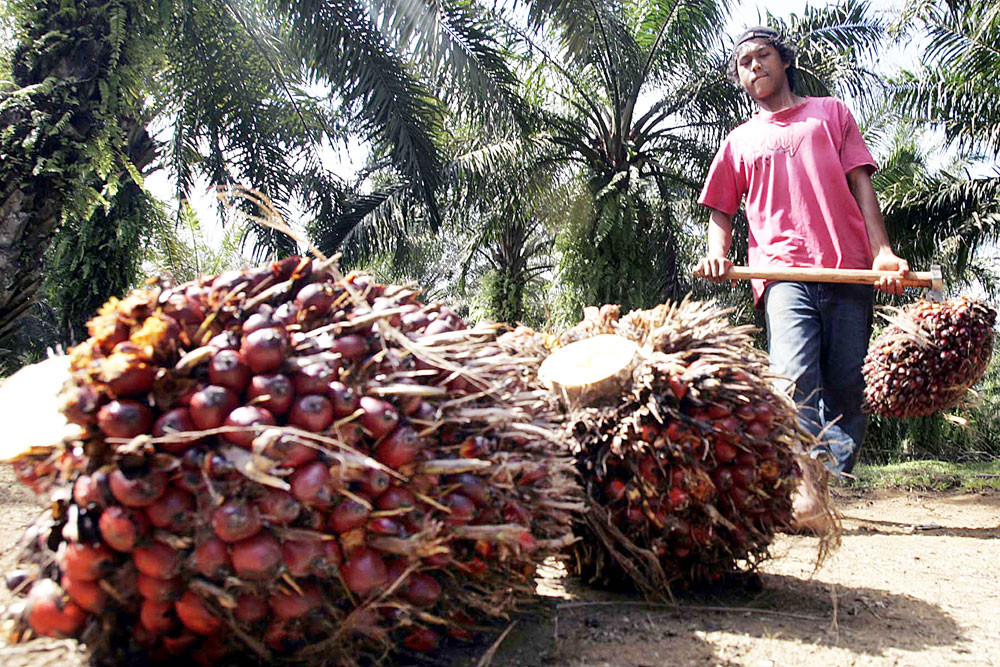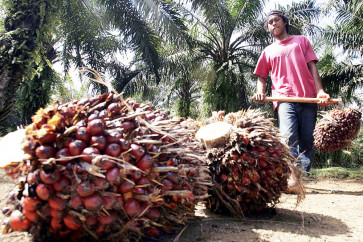Popular Reads
Top Results
Can't find what you're looking for?
View all search resultsPopular Reads
Top Results
Can't find what you're looking for?
View all search resultsResolving paradox of over-competitive palm oil
In order to maintain competitiveness, palm oil producers must recognize the need for fair competition and a level playing field to coexist with other oilseed crops.
Change text size
Gift Premium Articles
to Anyone
 Harvest time: A worker gathers oil palm fruit bunches at a plantation in Lampung. Indonesia and Malaysia, the first- and second-largest palm oil producers, have threatened to challenge the European Union via the World Trade Organization if the EU continues to phase out palm oil from transportation fuel. (The Jakarta Post/R. Berto Wedhatama)
Harvest time: A worker gathers oil palm fruit bunches at a plantation in Lampung. Indonesia and Malaysia, the first- and second-largest palm oil producers, have threatened to challenge the European Union via the World Trade Organization if the EU continues to phase out palm oil from transportation fuel. (The Jakarta Post/R. Berto Wedhatama)
O
il palm is the most productive vegetable oil crop, known for producing four to nine times the yield of other oilseed crops and being the cheapest at an average margin of 20 percent compared to the price of other oilseed crops — or US$200 per ton compared to $360 per ton for soybeans, the crop with the second lowest price per ton. By all accounts, no other oilseed crop comes close to oil palm in terms of either crop yield or production costs.
In fact, oil palm cultivation requires the least amount of agricultural inputs among oilseed and vegetable oil crops. Oil palms need 2 kilograms of pesticides and 47 kg of fertilizers to produce 1 ton of oil, while soybeans need 29 kg of pesticides and 315 kg of fertilizers and rapeseed needs 11 kg of pesticides and 90 kg of fertilizers to produce 1 ton of oil.
Soybeans, sunflowers and rapeseeds demand five to eight times more land per 1 ton of oil than oil palm trees.
In addition to its exceptional productivity, oil palms also demand much less work than other oilseed crops. Palm oil is thus the cheapest oil to produce by far.
The latest report of the Food and Agriculture Organization (FAO) on palm oil states that vegetable oil exports, which contribute 41 percent to global vegetable oil production, will continue to be dominated by a handful of players.
Indonesia and Malaysia will continue to account for almost two-thirds of all vegetable oil exports in the coming decade.
If the growth of palm oil continues unabated, the commodity will dominate the seed and vegetable oil market for both food products and biofuels. Its superlatives have made palm oil a common foe among other crop producers that fear direct threats to their existence.

















